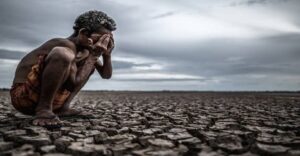
Biggest Economic Challenges
Biggest economic challenges encompass a wide spectrum of formidable hurdles, their impact intensified by our interconnected world. These challenges span from the widening chasm between wealth classes and overwhelming debt burdens to the economic aftershocks of climate change. Amid these, structural unemployment, fueled by rapid technological advancements, remains an enduring concern.
Moreover, geopolitical tensions disrupt trade and financial stability, while the enduring shadow of the COVID-19 pandemic continues to reshape industries and disrupt global supply chains. Successfully navigating these intricacies necessitates innovative policies and collaborative efforts, crucial for societies aiming at resilience and fair growth within an ever-evolving economic terrain.
Table of Contents
Biggest Economic Challenges
Biggest economic challenges encompass a tapestry of interconnected issues pivotal to nations’ growth. These challenges—spanning inequality, technological disruption, climate change, geopolitical tensions, and pandemic recovery—intertwine, posing multifaceted hurdles. Mitigating inequality beckons inclusive policies fostering equitable opportunities. Addressing technological disruptions involves balancing innovation with job preservation.
Climate change demands sustainable transitions for resilience. Geopolitical tensions necessitate cooperative solutions to trade and security. Pandemic recovery urges adaptable strategies to restore economies. Amidst these challenges, strategic interventions and innovative approaches emerge as imperatives for fostering stability, propelling growth, and shaping the evolving economic fabric of the 21st century.
1. Income Inequality
Income inequality remains one of the biggest economic challenges across the globe. The gap between the wealthy and the rest of society has widened significantly over recent decades. According to the World Inequality Report 2022, the top 1% earners captured twice as much of the global income growth as the bottom 50% since the 1980s.
The World Bank highlights that income inequality has risen in most regions since the 1980s. In the United States, for instance, the top 1% of earners saw their income grow by over 200% between 1980 and 2016, while the bottom 50% experienced only a 1% increase. Addressing this challenge requires a combination of policies such as progressive taxation, improved access to education, healthcare, and employment opportunities, along with measures to enhance social safety nets.
2. Climate Change and Environmental Degradation
Environmental concerns have grown into one of the biggest economic challenges of paramount importance. Climate change poses a threat not only to the environment but also to economic stability and sustainable growth. The costs associated with extreme weather events, natural disasters, and the long-term impact on industries are significant.
According to the Intergovernmental Panel on Climate Change (IPCC), global temperatures have increased by approximately 1.1 degrees Celsius above pre-industrial levels. This rise has led to severe consequences, including the increased frequency and intensity of extreme weather events. Mitigating climate change requires substantial investments in renewable energy, sustainable infrastructure, and the adoption of green technologies. Policymakers must work towards achieving international cooperation and agreements to combat this global issue effectively.
3. Unemployment and Underemployment
Job creation and the quality of employment opportunities are crucial for economic development. Persistent unemployment and underemployment, exacerbated by technological advancements and global economic shifts, pose some of the biggest economic challenges for both developed and developing economies.
The International Labor Organization (ILO) estimates that global unemployment rose to 205 million people in 2020, an increase of 33 million compared to 2019. The COVID-19 pandemic further exacerbated this situation. Policies aimed at promoting job growth, enhancing skill development, and fostering entrepreneurship are vital in addressing these challenges. Investing in education, vocational training, and supporting small and medium-sized enterprises (SMEs) can significantly contribute to tackling these issues.
4. Debt and Fiscal Challenges
Mounting public and private debt levels have become a growing concern for economies worldwide, constituting one of the biggest economic challenges. High levels of debt can constrain government spending, limit business opportunities, and hinder economic growth.
The global debt-to-GDP ratio reached a record high of over 355% in 2021, according to the Institute of International Finance (IIF). This includes both government and private sector debt. Fostering fiscal discipline, enhancing transparency in public finances, and implementing prudent borrowing practices are crucial. Governments must strike a balance between stimulating economic growth and managing debt levels effectively.
5. Global Trade Uncertainty
Trade tensions, protectionist policies, and geopolitical conflicts have introduced uncertainty into global trade dynamics. Disruptions in supply chains, tariffs, and trade restrictions pose some of the biggest economic challenges to businesses and hinder international economic cooperation.
The World Trade Organization (WTO) projected a 9.2% decline in the volume of world merchandise trade in 2020 due to the COVID-19 pandemic and subsequent disruptions. Efforts to promote fair and open trade, resolve trade disputes through dialogue, and strengthen multilateral institutions such as the WTO are essential. Embracing policies that encourage free and fair trade can bolster economic growth and stability.
Bottom Line
These five economic challenges represent some of the biggest economic challenges, encompassing complex and interconnected issues that require comprehensive and coordinated efforts from governments, international organizations, businesses, and civil society. Addressing these challenges demands innovative solutions, robust policies, and global cooperation to create a more equitable, sustainable, and resilient economic future for all.





